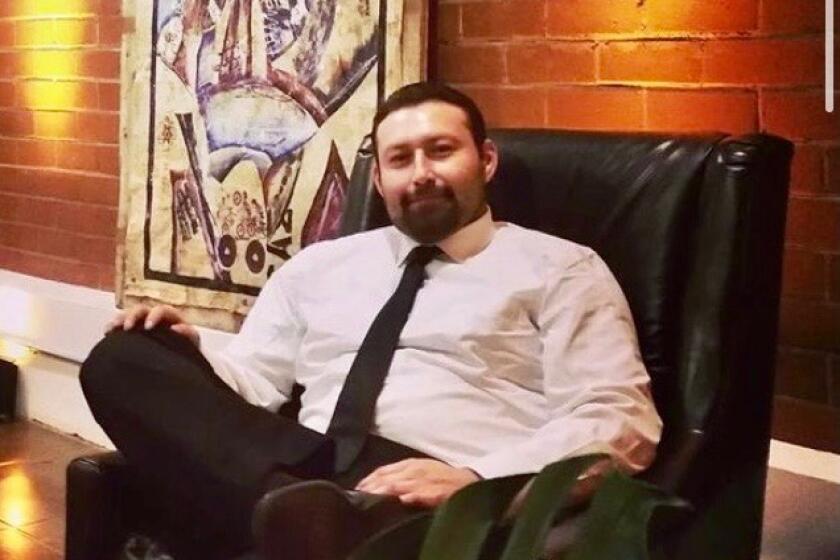A little Brown wizardry needed to fix budget
Gov. Jerry Brown is testy. He’s defensive. He’s very frustrated.
He’s only human, after all — not a demigod, not the all-wise, powerful supergov he portrayed himself to be when running for the office.
It’s hard to know who believed that portrayal the most: the voters, the Sacramento insiders or the candidate himself.
Regardless, it hasn’t panned out the way most people had hoped, and certainly not the way Brown had envisioned.
So on Monday, he was in the governor’s press conference room — built by his father, incidentally — trying to explain why the state budget hole had grown 71% deeper since January, expanding from $9.2 billion to $15.7 billion. And exactly what he proposed to do about it.
His voice was hoarse and staccato, almost pleading. In fact, he did plead: “A plea to the voters. Please increase taxes temporarily.”
In November, assuming his initiative qualifies for the ballot, Brown will ask voters to raise income taxes substantially on the wealthy and sales taxes minimally on everyone. That, he figures, would generate $8.5 billion for the fiscal year starting July 1; $6.5 billion annually after that.
If the voters reject his plea, he proposes to cut K-12 schools and community colleges by $5.5 billion. The University of California and California State University systems would be docked $250 million each, meaning even steeper tuition.
With or without the tax hikes, Brown is proposing $8.3 billion in program cuts. His revised budget calls for further slashing of welfare benefits and healthcare for the poor, reducing home services for the elderly and closing state offices one day a week. That’s for starters.
The governor proposed filling the budget hole with 50% program cuts, 35% taxes and 15% gimmicks that he called “borrowings and deferrals.”
Sacramento is gradually fixing the state’s structural deficit, he contended. But tax revenue came in lower than expected, federal judges blocked some cuts and the Obama administration refused to allow other reductions.
“We’re making real progress,” he asserted to reporters, adding a Brownism: “So I would urge a modicum of stoicism and less of indulging your propensity to immediate gratification….
“I think you can be confident that before I leave here, we will be in solid fiscal balance.”
The 74-year-old governor’s term expires in 2014. He’s expected to seek another, which would be his fourth, counting his first tenure in the 1970s.
He got a little crusty with reporters, especially when one asked why anyone should believe these latest numbers when the projections he presented in January were so far off.
“Here’s the deal: We have an uncertain economy,” Brown replied. And the governor tried to explain why he and the Legislature bet on the come last year by plugging a phantom $4-billion tax-take into the budget to make it balance on paper. Everyone winked at the time. The money, of course, never showed up.
Brown characterized it as compassionate fiction.
“It is very easy to play gotcha,” Brown told the reporter. “But when I have to cut and people lose their jobs or a mother loses her child care … I am reluctant to do that if there is a plausible reason why we might not have to. Now, it turned out in this case we did not get the money....
“The capitalist system is not coincident with your expectations of exactitude.”
He continued: “This is the best that I can do. I have been thinking about this a long time. If one of you guys can think of something better, I’ll read your story … and if it passes the smell test, we might even incorporate it.”
That’s tempting, but Brown’s smell test is different from mine. To begin with, as I’ve often written, I never would have ceded my gubernatorial power to sign tax increases by promising voters they’d have the final say.
So rather than just having to negotiate with Republican legislators to provide votes for a tax hike — a difficult enough task — the governor was forced to also bargain with the public employee unions that he needed to bankroll the election campaign for a tax measure. That three-cornered negotiating attempt crumbled last year.
That’s why Brown is going the initiative route. And it’s one reason we’re here with a deeper deficit.
Brown defies normal description as a moderate or liberal. Contrarian is more apt. But I’ve never heard the Democrat orate such a passionate defense of government as he did on Monday.
“Government is a nurse. It’s a teacher. It’s a highway patrolman. It’s someone working in a mental hospital. And when we cut, that’s what we cut,” he said.
“There are ideologues who say government is an abstraction that you can just completely eviscerate with no impact in the real world. Well that isn’t true.”
This deficit isn’t all Brown’s fault. Very little of it is. He can be faulted —as I’ve mentioned — for not exercising his full political muscle. But his policies have been pretty solid.
The real blame rests with the recession, an outdated roller-coaster tax system, the two-thirds legislative vote requirement for tax increases, an outmoded Proposition 13 property tax system that has shifted power and responsibility from local governments to Sacramento, legislative term limits that stunt lawmakers’ growth — and political polarization.
“I’d like to see Jerry get some mojo,” says Bill Whalen, a former speech writer for Republican Gov. Pete Wilson and a research fellow at the Hoover Institution. “He might be what’s right for California at this time — someone without higher political ambition and not in lock step with his party.”
We’re all waiting for the mojo. And none of us more than Brown.
More to Read
Sign up for Essential California
The most important California stories and recommendations in your inbox every morning.
You may occasionally receive promotional content from the Los Angeles Times.











